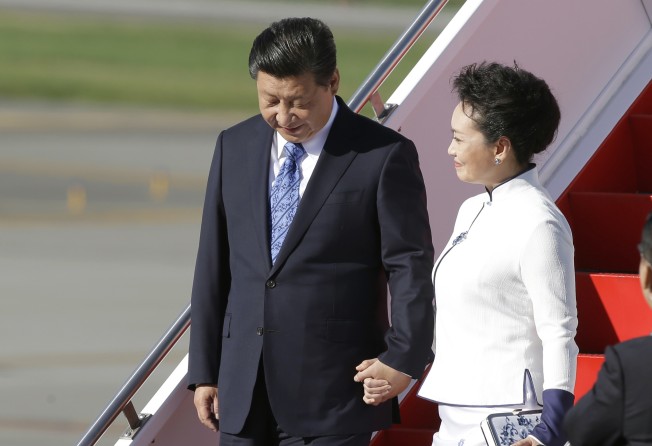China will be fine, but tough grind lies ahead

So how anxious should we be about the state of the Chinese economy, and its potential to drag us all into another agonizing cycle of global recession?
I am sure that question is close to the lips of US President Barack Obama as he hosts Xi Jinping in the White House. The irony is that whether Xi is upbeat or down, the itch in the US and elsewhere in the West to pour blame on China for the world’s present ills means the substance of Xi’s answer will barely be heard.
Even though it is still difficult to make any confident judgments about the state of China’s economy and the clumsily managed devaluation and stock market convulsions of recent months, my sense is that news in the short term is likely to be gloomier than most people would like to hear.
And I’m not talking about arcane arguments on whether GDP growth is 7 per cent, 6.7 per cent or significantly lower – I always feel uncomfortable with such crude and opaque measures to tell us what is going on in an economy. Rather, a major structural adjustment is underway, and the environment for that adjustment could hardly be worse.
As Xi and the Beijing leadership set about a massive, complex and overdue restructuring of their economy, the anxieties of many economies around the world are palpable, and Obama would not be wrong to express concerns.
And we are not just talking about commodities exporters like Australia, Indonesia, Brazil, Venezuela, Russia or Nigeria, whose balance of payments have suffered massively as falling Chinese demand for resources has punished commodity prices worldwide. Nor are we just talking about the Asian economies so intricately locked into the international manufacturing supply chains that today almost all end in China.
We are talking about the biggest single locomotive for economic growth since the global crash in 2008 suddenly being pulled into the sidings not just for routine maintenance, but for a major overhaul. The timing is appalling.
So, just how anxious am I about the state of the Chinese economy? Ask me that six months ago, and I would have dismissed anxieties out of hand. Today, the evidence suggests a difficult two or three years lie ahead.
The Beijing leadership has been aware for the better part of a decade the export-driven manufacturing model that has powered China’s growth for the past three decades is no longer fit for purpose. The need for more “ooompf” to come from domestic consumption, but the needed reforms have been slow to work.
Stimulating domestic consumption has proven frustrating and elusive. Today, domestic consumption accounts for less than 40 per cent of GDP, compared with 56 per cent in India and almost 70 per cent in the United States.
And building the role of the private sector when so many vested interests sit inside the country’s 150,000 lumbering state-owned enterprises, many of them jealously guarded oligopolies or monopolies, has also been hard. And by the way, this has to be one of the reasons why the anti-corruption campaign being waged by Wang Qishan is of such pivotal importance to economic reform.
But before we get carried away on a tidal wave of gloom, let me recall the words of a top British diplomat leaving Hong Kong close to 1997. When asked to summarise in one word his thoughts about the 1997 transition, he was clear: “Worry”.
But then asked if he could summarise in two words, he was similarly clear: “Don’t worry.”
Over the past three decades, a pragmatic and fiercely reform-minded Chinese leadership have brought this huge and complex country from ignominious poverty to a nation of respectable middle income earners. This progress seems set to continue, albeit at a less frantic pace than we have seen since 1980.
A Beijing teacher who in 1978 was bicycling to work and subsisting much of the year on cabbage today drives a car, WeChats on a smartphone and takes holidays every year to Japan and Thailand. Perhaps China’s greatest challenge at present is not to sustain indefinite growth, but to prepare its population to recognise that no booms can continue indefinitely.
In the West, we have tended to let the market lead that process, however brutal that sometimes can be. China’s leaders are instead trying to manage the process, and if the stock market convulsions of recent months are any guide, they have egg on their faces.
But since 2008, who among the world’s economic leaders does not have egg on their face?
David Dodwell is executive director of the Hong Kong-Apec Trade Policy Group